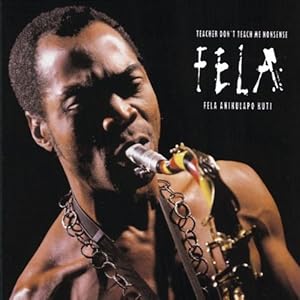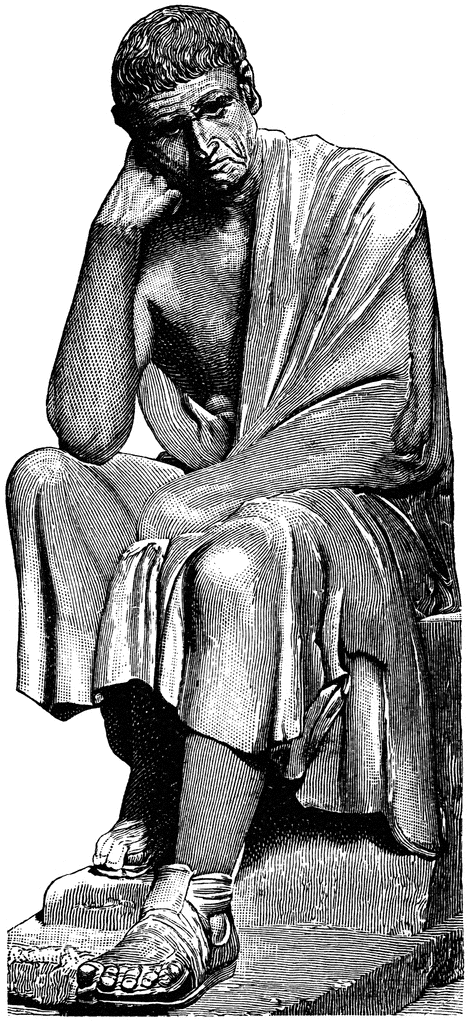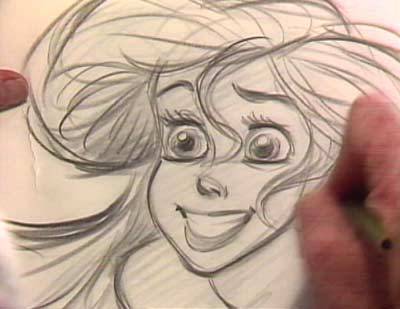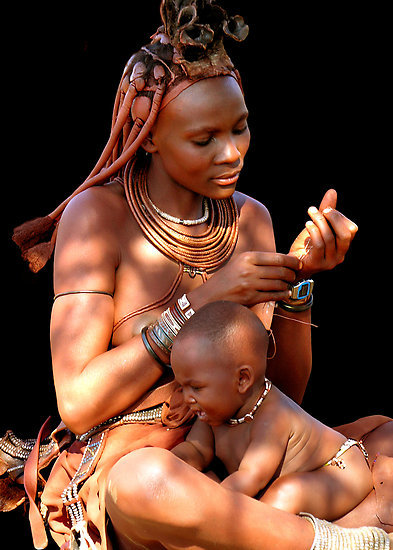Amanda Akokhia.
Wednesday, 21 December 2011
Tuesday, 20 December 2011
8 FACTS (ONYEKA ONWENU)
 Onyeka Onwenu is a Nigerian singer, actress and politican.
Onyeka Onwenu is a Nigerian singer, actress and politican.In 2006, she won the African Movie Academ Award for Best Actress in a supporting role.
She is currently the chairperson for the Imo State Council for Arts and Culture.
She has been singing Gospel and many other syles of music in Nigeria since the 1970s.
She began her broadcatsing career with the Nigerian Television Authority(NTA) in the 1980s.
 Her father was a politician and died when she was barely four years old.
Her father was a politician and died when she was barely four years old.Under the banner of Association of Female Musicians in Nigeria (AFEM), she released an album with other artists in support of an anti-HIV/AIDS campaign.
 She is fondly called the 'Elegant Stallion' and ranks amongst the best artists that Nigeria has produced both locally and internationally.
She is fondly called the 'Elegant Stallion' and ranks amongst the best artists that Nigeria has produced both locally and internationally.Tolu Falode.
CULTURAL WORDS OF WISDOM
A chick that would grow into a cock can be spotted the very day it hatches.
An old woman is always uneasy when dry bones are mentioned in a proverb.
A man who pays respect to the great paves the way for his own greatness.
Do not look at where you fell but at where you slipped.
Looking at a king's mouth, one would never think he suked his mother's breast.
You must judge a man by the work of his hands.
The pillar of the world is hope.
There is no medicine against old age.
Hold a true friend with both hands.
A champion bull starts from birth.
It is better to walk than curse the road.
When your mouth stumbles, it's worse than feet.
You cannot take away someone's luck.
Tolu Falode.
Saturday, 10 December 2011
Thursday, 8 December 2011
8 FACTS (CHRISTY ESSIEN IGBOKWE)
She was born on 11 November 1960.
She lost her mother when she was 12.
Although she is not Yoruba most of her hit songs are in this language amongst other traditional languages.

Growing up she lived with her late mother's friend who encouraged her singing career and bought her a fairly used cassette player to record her songs.
She began her music career in NTA Aba on a programme called 'New Sound'.
She began her music career in secondary school singing at various clubs in Aba and Abia.
Her honors include 'Nigerian Lady of Songs' Award.
The 'Lady of Songs' died in June 2011.
Tolu Falode.
Tuesday, 6 December 2011
Monday, 5 December 2011
CULTURAL WORDS OF WISDOM
 A chattering bird build no nest.
A chattering bird build no nest.If you climb up a tree, you must climb down the same tree.
When a needle falls into a deep well, many people will look into the well, but few will be ready to go down after it.
It is not what you are called but what you answer to.
Not to know is bad, not to wish to know is worse.
The one being carried does not realise how far away the town is.
The mediocre brags in the absence of the grand masters.
A person once bitten by a snake, would be scared by an old rope.
Not everyone who chased the zebra caught it, but he who chased it caught it.
Proverbs are the palm oil with which words are eaten.
The Mouse that makes jest of a cat has already seen a hole nearby.
When you have a lot to do, start with a meal.
The hand that rocks the cradle rules the nation and its destiny.
 A ripened fruit does not cling to the vine.
A ripened fruit does not cling to the vine.Tolu Falode.
Saturday, 3 December 2011
Friday, 2 December 2011
THE LITTLE MERMAID.
 The Little Mermaid marks the beginning of the Disney Renaissance. To pay tribute to this true work of art, this week’s Disney classic is dedicated to the stubborn red headed Ariel who has the courage and conviction to follow her dreams.
The Little Mermaid marks the beginning of the Disney Renaissance. To pay tribute to this true work of art, this week’s Disney classic is dedicated to the stubborn red headed Ariel who has the courage and conviction to follow her dreams.This Disney feature came to theatres in 1989. Glen Keane a lead animator at the Dinsey studios embodies the vivacious teenager’s character in simple words: “a struggle to be free”;words that everyone can identify with at some point in their lives.
This feature was inspired by the original fairytale written by Hans Christian Andersen; with a few magical tweaks, this storyline was modified for the Disney audience.
Andres Deja another leading animator at the Disney Studios who acts as a Directing Animator explains the character of the loving parent King Triton. The talented animator rightly says simply put, the king likes to be in control. An identifiable feature in the parent child relationship I think.
Here’s an interesting fact about Disney: ever since Snow White, the studio has had human studies to show them how characters should move and dance.
Ariel’s realistic facial impressions where captured with the use of this techinque as the Disney artists mimicked her features from a live screen test of a model in the same staging as was required in the actual feature-an example of this is the “Part of Your World(Reprise)” song by Ariel. The main movements of her character where mimicked from live shots.
The talented Ron Clemens and John Muskeer wrote and directed this timeless story.
The two artists discuss an element of animation that is important to the artists and the film itself-character voicing.
Here’s another little insight into the world of animation according to the Masters, Clemens and Muskeer-it is critical that the animator’s are inspired by the voice actors as this in turn inspires the look of the character. The voice adds so much charcter to the animated personality. Also interesting to note, is that the voice is done before the character itself as the actors help to bring these characters to life through their individual voices and habits. The Disney animators subtely use their distinct body features and voices, to add an illusion of life into the animated character.
This movie is equally played by talented actors. Jodi Benson plays the part of Ariel in this while Christopher Barnes plays Prince Eric.
The actor gives an insightful description of what it feels like to play the part of an animated character:
I walked in there; I saw a stool, I saw a stand, I saw some papers and it was a big empty studio.
Andres Deja describes the hope of the animators in Disney is to make sure that their characters have to be seen as close to human as possible; as having ‘flesh and blood’. I think its safe to say that this feature certainly has that element of reality to it, even though it is at the end of the day a bunch of animated characters moving on screen. I believe this shows the true talent of the Disney artists-their ability to turn hand drawn characters into creatures of substance and vitalitty.
Glen Keane animates Ariel in this movie. Keane, one of Disney’s respected animators, explains his goal with Ariel was to bring expression into her face and make her to appeat thoughtful. Well, those big blue eyes of hers certainly look like their up to mischief half the time! An additional praise to the Disney artist’s there I guess.
Howard Ashman and Alan Mencken, once more lend their talented hands to the Disney studio for this feature adaptation as they composed the memorable songs of ‘The Little Mermaid’.
Howard Ashman states that in almost every musical ever written, there’s usually a place quite early where the leading lady sings about what she wants; and the audience roots for her to get it for the rest of the night.
That is certainly the case for one of the key songs in this feature, ‘Part of Your World.’
 More memorable characters from this feature are: Scuttle the lovable seagull who was played by Buddy Hackett-anyone see the genous resemblance?- and ofcourse the manipulative Ursula who was played by Patt Carroll-see the resemblance? Arent the artists genius?
More memorable characters from this feature are: Scuttle the lovable seagull who was played by Buddy Hackett-anyone see the genous resemblance?- and ofcourse the manipulative Ursula who was played by Patt Carroll-see the resemblance? Arent the artists genius?Kathy Zielinski animates this fascinating creature.
Question Time...is Ursula a squid or an octupus?...Squid! Thought she was an octupus as well. Her slimy tentacles where used to accentuate movement.
The adorable Flounder and hilarious Sebastian add some humour to this enchanting fairytale.
Sebastian the Crab added to the musical element of this feature. According to Ashman, in order to add to the flavour of the film, Sebastian had some Jamaican roots as is obvious from his musical use of words, to add a fun, energetic and truly diverse feature to the fairytale.
Here’s to the Little Mermaid! One of Disney’s best feature adaptations that captured the hearts of audiences worldwide!
Tolu Falode.
Thursday, 1 December 2011
CULTURAL WORDS OF WISDOM
Even though the baby monkey appears so ugly it mother loves it anyway.
Where the leopard is made judge the goat would never get a fair judgment.
Tomorrow is pregnant and no one knows what she will give birth to.
A fly without an adviser ususally follows the corpse to the grave
When two brothers fight, stangers always reap the harvest.
The more one talks the more he/she reveals his/her secrets.
If your mouth turns into a knife, it will cut off your lips.
When the foolish man realises wisdom, know that he has exhausted all he has.
What an old man can see while seated a young man cannot see standing.
The mind is like a bag, everyone carries his/her own.
Character is like smoke; it cannot be hidden.
A roaring lion kills no game.
He who marries a beauty marries trouble.
 If you hear a mad man talking, wait a minute; you will hear what makes people think he is mad.
If you hear a mad man talking, wait a minute; you will hear what makes people think he is mad.
Words are easy friendship is hard.
Tolu Falode.
Where the leopard is made judge the goat would never get a fair judgment.
Tomorrow is pregnant and no one knows what she will give birth to.
A fly without an adviser ususally follows the corpse to the grave
When two brothers fight, stangers always reap the harvest.
The more one talks the more he/she reveals his/her secrets.
If your mouth turns into a knife, it will cut off your lips.
When the foolish man realises wisdom, know that he has exhausted all he has.
What an old man can see while seated a young man cannot see standing.
The mind is like a bag, everyone carries his/her own.
Character is like smoke; it cannot be hidden.
A roaring lion kills no game.
He who marries a beauty marries trouble.
 If you hear a mad man talking, wait a minute; you will hear what makes people think he is mad.
If you hear a mad man talking, wait a minute; you will hear what makes people think he is mad.Words are easy friendship is hard.
Tolu Falode.
8 FACTS (FELA KUTI)
 Born on the 15th of October 1938.
Born on the 15th of October 1938.His full name is Olufela Olusegun Oludotun Ransome-Kuti.
Fela was sent to London in 1958 to study medicine but decided to study music instead at the Trinity College of Music.
He formed his own political party called Movement of the People.
In 1979, he put himself forward for President in Nigeria's first elections for more than a decade but his candidature was refused.
Fela made the decision to sing in Pidgin English so that his music could be enjoyed by individuals all over Africa.
 Fela set up a nightclub in the Empire Hotel, named the Afro-Spot and then the Afrika Shrine where he performed regularly.
Fela set up a nightclub in the Empire Hotel, named the Afro-Spot and then the Afrika Shrine where he performed regularly. On 3 August 1997, Olikoye Ransome-Kuti, already a prominent AIDS activist and former Minister of Helath, stunned the nation by announcing his younger brother's death a day earlier from Kaposi's sarcoma which was brought on by AIDS.
On 3 August 1997, Olikoye Ransome-Kuti, already a prominent AIDS activist and former Minister of Helath, stunned the nation by announcing his younger brother's death a day earlier from Kaposi's sarcoma which was brought on by AIDS.Tolu Falode.
Wednesday, 30 November 2011
Tuesday, 29 November 2011
Monday, 28 November 2011
TIME TO TALK
Aristotle's Claim To Happiness
What is virtue? According to the dictionary, it is described as “behavior showing high moral standards; a quality considered morally good or desirable in a person.” From this definition, it is generally acceptable to declare that we all would love to be called virtuous, even only regarding certain things. But who decides
 what is and what is not virtuous? The pre-Socratic Greek philosopher, Protagoras, stated that the truth on one side must be balanced or weighed against the truth of the opposing side so as to gain knowledge about what is right and wrong. It has been seen and said for ages passed that there could be no objective truth and in this case moral values. It seems hard to believe there is, but in my opinion, what is moral or True is only human nature and our undying thirst to please ourselves and fulfill our own needs or wants. We must only believe in the moral value of our need to justify. Several cultures believed in slavery, from ancient Lacedaemon to Post-colonial America. They saw this as a means of fulfilling their desires. I believe satisfying human nature is the absolute moral value no matter the form you address it as. Although eras change and novel ideas come to light, they condition us to accept those newfound ideas as our nature and thus the argument about slavery/anti-slavery is only supported by the notion that individuals and cultures only abide to these values to delight themselves. In essence, whomever is able to direct and/or shape the nature of men and reveal to them that prior beliefs are ignorant and deplorable, he alone has the power to control morality. Our societies and cultures shape what we believe to be good, right and virtuous. Aristotle goes against these doctrines to identify certain aspects and outstanding elements that are absolute in regards to the pursuit of virtuous acts. They are fundamental, according to him, to the make-up of human-kind in this realm and the next. In his famous work, the Nichomachean Ethics, he holds that virtues are “those qualities that allow us to achieve a state of eudaimonia, or human flourishing.” He later goes on to distinguish between intellectual virtues and moral virtues. Intellectual virtues, he explains, enable us to think rationally, while moral virtues enable us to handle our emotions and desires rationally. It seems to suggest that virtue is very much related to rationality.
what is and what is not virtuous? The pre-Socratic Greek philosopher, Protagoras, stated that the truth on one side must be balanced or weighed against the truth of the opposing side so as to gain knowledge about what is right and wrong. It has been seen and said for ages passed that there could be no objective truth and in this case moral values. It seems hard to believe there is, but in my opinion, what is moral or True is only human nature and our undying thirst to please ourselves and fulfill our own needs or wants. We must only believe in the moral value of our need to justify. Several cultures believed in slavery, from ancient Lacedaemon to Post-colonial America. They saw this as a means of fulfilling their desires. I believe satisfying human nature is the absolute moral value no matter the form you address it as. Although eras change and novel ideas come to light, they condition us to accept those newfound ideas as our nature and thus the argument about slavery/anti-slavery is only supported by the notion that individuals and cultures only abide to these values to delight themselves. In essence, whomever is able to direct and/or shape the nature of men and reveal to them that prior beliefs are ignorant and deplorable, he alone has the power to control morality. Our societies and cultures shape what we believe to be good, right and virtuous. Aristotle goes against these doctrines to identify certain aspects and outstanding elements that are absolute in regards to the pursuit of virtuous acts. They are fundamental, according to him, to the make-up of human-kind in this realm and the next. In his famous work, the Nichomachean Ethics, he holds that virtues are “those qualities that allow us to achieve a state of eudaimonia, or human flourishing.” He later goes on to distinguish between intellectual virtues and moral virtues. Intellectual virtues, he explains, enable us to think rationally, while moral virtues enable us to handle our emotions and desires rationally. It seems to suggest that virtue is very much related to rationality.  On the search for the chief good of existence, Aristotle holds that “every art and every inquiry, and similarly every action and pursuit, is thought to aim at some good; and for this reason the good has rightly been declared to be that which all things aim.” In this regards, he discloses that human endeavors should be aimed at attaining that “chief” good unless we are prone to a life of infinite quests and activity as we choose everything for the sake of something else which results in vanity and emptiness. A simple example would be surrendering to the passions of lust, hunger and even anger. It is virtuous to partake of these emotions and sentiments only if they are necessary for human flourishing and furthermore, beneficial to the community, society and human-kind, then and only then, can they be regarded as being virtuous. In order not to be subjected to a hollow and meaningless life, he declares happiness the greatest and chief of all good. But how do we attain happiness? Clearly it involves building a foundation with the virtuous deeds and thoughts through the interrelationship between the function of man and doing things well, that is, in accord to virtue. Happiness, which is synonymous to contentment or satisfaction is closely tied to the fulfillment one begets from excellence and chasing that which brings a sense of competence in a job well done (virtue). Using this mode of thinking, the practice and exercising of virtues is progressive and favorable as a whole towards the individual life, the general public and ultimately, attaining happiness. “For the state of mind may exist without producing any good result, as in a man who is asleep or in some other way quite inactive, but the activity cannot; for one who has the activity will of necessity be acting, and acting well.” This statement goes to show that not only in physical actions but more importantly, happiness depends on a restructuring of the mind in which no immediate harm can be done but a stable foundation, independent of the passions and transitory nature of circumstances.
On the search for the chief good of existence, Aristotle holds that “every art and every inquiry, and similarly every action and pursuit, is thought to aim at some good; and for this reason the good has rightly been declared to be that which all things aim.” In this regards, he discloses that human endeavors should be aimed at attaining that “chief” good unless we are prone to a life of infinite quests and activity as we choose everything for the sake of something else which results in vanity and emptiness. A simple example would be surrendering to the passions of lust, hunger and even anger. It is virtuous to partake of these emotions and sentiments only if they are necessary for human flourishing and furthermore, beneficial to the community, society and human-kind, then and only then, can they be regarded as being virtuous. In order not to be subjected to a hollow and meaningless life, he declares happiness the greatest and chief of all good. But how do we attain happiness? Clearly it involves building a foundation with the virtuous deeds and thoughts through the interrelationship between the function of man and doing things well, that is, in accord to virtue. Happiness, which is synonymous to contentment or satisfaction is closely tied to the fulfillment one begets from excellence and chasing that which brings a sense of competence in a job well done (virtue). Using this mode of thinking, the practice and exercising of virtues is progressive and favorable as a whole towards the individual life, the general public and ultimately, attaining happiness. “For the state of mind may exist without producing any good result, as in a man who is asleep or in some other way quite inactive, but the activity cannot; for one who has the activity will of necessity be acting, and acting well.” This statement goes to show that not only in physical actions but more importantly, happiness depends on a restructuring of the mind in which no immediate harm can be done but a stable foundation, independent of the passions and transitory nature of circumstances. 
They seek a temporary elation without first making a conscious decision to remain adhered to efforts needed to be secure in the contentment and satisfaction of hard work and other virtues. Furthermore, they are regarded as irrational (due to our earlier connection of virtue to rationality) and thus, are as changeable as an infants diaper. Being easily swayed by external factors, there is no sense of rest or peace for these ones; their attachment to the pleasures and desires bring them suffering and pain forever chasing the next good like a dog and his tail. Without attachment to anythin
g within this realm, we are free from upset and suffering (which are defined as antonyms to happiness). In closing, the practice of non-virtue, no matter how innocent, ultimately leads to sadness and destruction. A life of non-fulfillment should never be wished upon anyone.
Olujimi Oyenekan.
Subscribe to:
Comments (Atom)

























